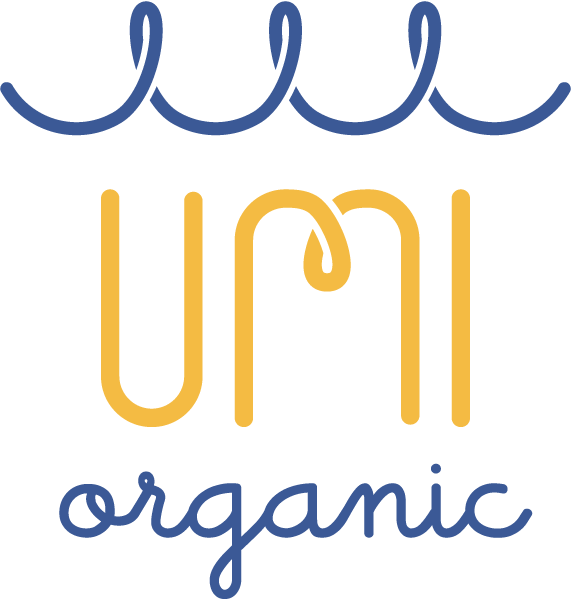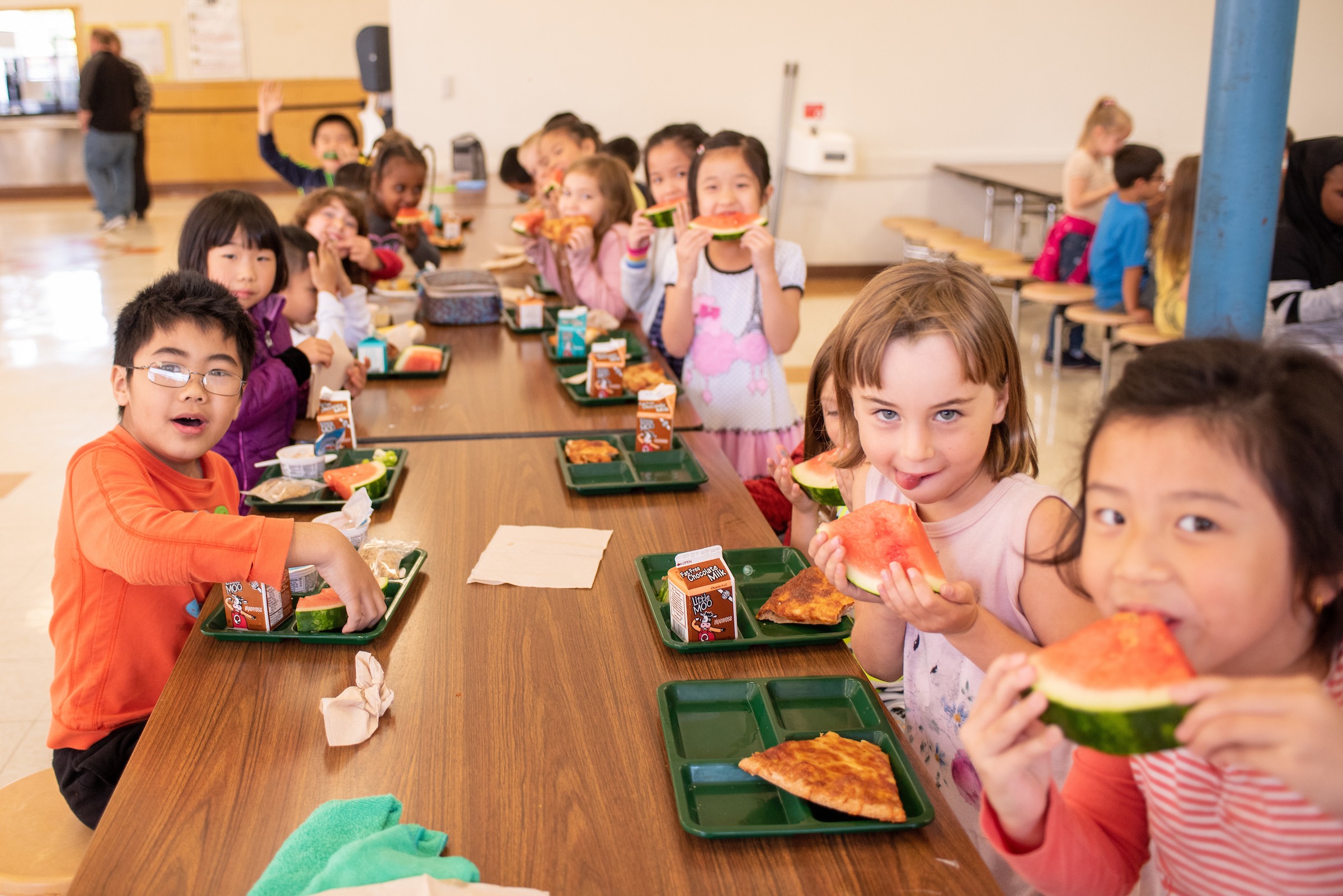A shorter version of this post is coming shortly on the Ecotrust blog.
By Lola Milholland
Co-founder and CEO of Umi Organic
I was talking on the phone to Betty Izumi earlier this week. Betty is a professor at PSU who researches and teaches about community health. She has mentored me as I developed a whole grain yakisoba noodle for Portland Public Schools (PPS). Betty was telling me how frustrated she gets when she hears Portlanders talk about how gross school lunch is. “These are smart, open, educated people, and they are perpetuating a stereotype that is not true. I ask them, ‘How do you know? Have you ever eaten it?’ ”
Over the last 13 years, Portland Public Schools has been slowly and intentionally making smart choices to make lunch healthier and source more local food. I worked at Ecotrust when we started partnering with PPS and focusing on farm to school statewide. Those efforts became state legislation that gives Oregon schools money to buy local food and create garden and farm education opportunities. (Oregon legislators are voting to renew the funding this month.) I am here to declare that there is high quality, delicious food in Portland school lunches. But you really shouldn’t take my word for it.
On May 14, for the first time, Umi Organic yakisoba stir-fry noodles are being served for lunch in all Portland Public Schools. Our yakisoba noodles are made with 50% organic whole grains sourced from Camas Country Mill in Junction City, Oregon. We developed this noodle specifically for schools after talking to several nutrition directors at the Ecotrust event Local Link, where I learned that schools require 50% or higher whole grain content in any grain products. We had to work very hard to find the right flour mix to create a delicious, chewy noodle without the typical preservatives, yellow food dyes, and unidentifiable ingredients.
The results of our taste test at KairosPDX in March!
On Umi noodle day, kids will enjoy a traditional Japanese meal of fresh roasted cabbage, carrots and noodles in yakisoba sauce, with or without chicken. We did a taste test with elementary school kids at the KairosPDX Learning Academy and the noodles were a big hit. “I need these in my life!” declared one happy student. We even put school garden grown Chinese cabbage into the mix! Betty reminds me that yakisoba is a brilliant way to sneak vegetables into kids. I couldn’t be more excited for this pilot lunch. If it’s a hit on this larger scale, you may find our noodles as a regular menu item next school year.
The inspiration for this meal comes from a project Betty has been involved with at Richmond Elementary School, which houses Portland Public Schools’ Japanese Immersion Program and where Betty’s two daughters go to school. For the past four years, parents have organized an annual Japanese cultural lunch to better bridge the classroom to the cafeteria and showcase culture in a new dimension. These lunches have had higher than average participation, and Whitney Ellersick, Senior Director of Nutrition Services for PPS, took notice. Whitney told me that she’s seen kid’s palates change; Portland kids are more open to new foods than in the past, and she saw the success of these lunches as a sign that they could try to bring them district wide.
“I love that the idea started with the community. Through their contributions, efforts and support, we were able to test this recipe with students, and then ultimately share this food district wide. It supports all of our efforts and visions for school meals, and we hope to continue to expand so we can feature meals and foods that represent the community we serve.”
Photo by Graham Schreiber, KairosPDX and Food Corps
I remember the first time I tried yakisoba. I was on a class trip to Japan in the 5th grade, in Nagoya at a summer fair with my host family. I was dressed in my first yukata, a dark blue summer cotton kimono with irises on it. It was the height of summer and extremely muggy, air sticky and thick. At this fair, men with cloths tied to their sweaty foreheads stood in front of massive cast iron griddles heaped with piles of glistening yakisoba noodles with sautéed vegetables. Sweet and savory, chewy and crunchy, I loved it so much I think I ate my whole plate in one big inhale. Yakisoba descends from Chinese chow mein noodles, but with an unusual twist: Japanese reinterpreted British Worcestershire sauce, using cooked fruits, and then added it to this stir-fry noodle dish. Japanese yakisoba sauce is sweeter, thicker, and more complex than its predecessors.
Why was I in Japan on a class trip in 5th grade? I attended Richmond Elementary School’s Japanese Immersion Program myself. Every day we studied in both Japanese and English. We sang Japanese children’s songs and celebrated Japanese holidays. We studied kanji in the morning and cursive in the afternoon. I remained in the immersion program through my senior year in high school and traveled to Japan four times during the period. When I went to college, I knew I wanted to continue to build on the years I had put in. I studied Japanese cultural history, and at age 20, I moved to the heart of Kyoto to live with a host family for a year and study Japanese at Doshisha University. Living in Japan exposed me to the depth of Japanese food culture, with its heightened place-based sensibility and keen focus on balance. I have been obsessed ever since.
After college, I was riveted when I learned that Portland is the largest wheat and barley export gate in the nation, and the vast majority of that wheat goes to Japan. That knowledge was the seed that later sprouted and inspired me to launch Umi Organic, with our focus on regional grains, direct relationships, and organic farming.
Getting our noodles into schools was both extremely challenging and also not hard at all. It was challenging because school nutrition requirements dictated at the federal level are difficult to navigate. I think of nutrition directors as having to build jigsaw puzzles every day to meet all the federal meal requirements, with ingredients as the puzzle pieces. If I hadn’t had the help of Amy Gilroy of the Department of Agriculture and Heidi Dupuis of the Department of Education I would literally never have figured out how to describe my product in a way that is useful to nutrition directors. At the same time, it was not hard at all because I had help all along the way: Richmond parents piloted the first yakisoba lunch; Ecotrust created a space where I could meet school nutrition directors; Whitney of PPS was completely receptive to working with me; the Food Innovation Center helped me figure out how to make sure my noodles could be cooked in an oven, the only option in schools; and Food Corps helped me stage our taste test so I really believed that kids would love the noodles (there’s no way I would serve kids a noodle they didn’t like!). Not to mention the Oregon legislation so many people, including Ecotrust and my mentors there, Deborah Kane and Michelle Markestyn, helped launch that makes it possible for Whitney to spend more for my product.
I credit my early bilingual education to the way I now experience the world—as more complex than simple, as alive with culture that is constantly shape-shifting, deep and historical but also permeable and fluid. Food is exciting to me because it is both an actor in and a reflection of how cultures navigate identity. How powerful that Portland school kids will have not only Japanese yakisoba, made with Oregon-grown, organic wheat, but also whole grain tamales, Hermiston watermelons, Willamette Valley parsnips—foods that feed their bodies but also give them a sense of place, diverse cultures, seasonality, and the love and care of their community.
Photo by Shawn Linehan.
This lunch feels like a moment when many threads of my life are coming together into a strong rope I can continue to weave going forward. On May 14, which is my mom’s birthday, I will be at Richmond, my elementary school, to eat lunch. I encourage you to support our efforts! You can show PPS Nutrition Services that their investment in local farmers, companies and kids—both in money and also in time and intention—matters and is valuable to you.
What You Can Do
Send your kids to eat Umi noodles on May 14.
Share the news with friends, far and wide. Feel free to use this illustration.
Post our PSA in your school’s PTA newsletter:
PSA: May 14 is Umi Noodle Day
On May 14, Umi Organic yakisoba stir-fry noodles are being served for lunch in all Portland Public Schools. Our yakisoba noodles are made with 50% organic whole grains sourced from Oregon farmers. Kids will enjoy a traditional Japanese meal of fresh roasted cabbage, carrots and noodles in yakisoba sauce, with or without chicken. Yakisoba was first served as part of a Richmond Elementary School Japanese cultural lunch, and it was such a hit with kids that they are bringing it district-wide, partnering with Umi Organic, a Portland-based women owned business. If this lunch is a hit, you may find our noodles as a regular menu item next school year. Please send your kids to eat Umi noodles on May 14.





